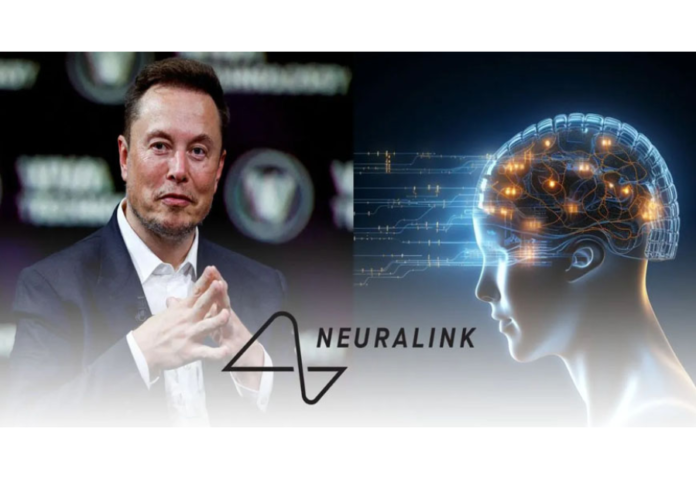The first human patient received an implant from brain-chip business Neuralink and is doing well, according to the billionaire founder, Elon Musk.
The first human patient received an implant from brain-chip startup Neuralink on Sunday and is doing well, according to the company’s billionaire founder, Elon Musk.
“Initial results show promising neuron spike detection,” Musk wrote on the social networking platform X on Monday.
Spikes are caused by neurons, which are defined by the National Institute of Health as cells that employ electrical and chemical impulses to transmit information across the brain and to the body.
Last year, the U.S. Food and Drug Administration approved the company’s first study to test its implant on humans, a significant milestone in the startup’s plans to help patients overcome paralysis and other neurological problems.
In September, Neuralink announced that it had acquired approval to recruit for the human trial.
According to Neuralink, the project employs a robot to surgically place a brain-computer interface (BCI) implant in a part of the brain that regulates the intention to move, with the original goal of allowing patients to control a computer cursor or keyboard using their thoughts alone.
Neuralink claims that the implants’ “ultra-fine” threads help convey signals in participants’ brains.
Musk said in a second post on X that Neuralink’s initial product would be called Telepathy.
The PRIME Study is a trial of the startup’s wireless brain-computer interface to assess the safety of the implant and surgical robot.
Concerns have been raised about the company’s safety measures. It was reported earlier this month that the corporation had been punished for violating U.S. Department of Transportation (DOT) regulations governing the movement of hazardous chemicals.
The company was valued at around $5 billion in June, but four lawmakers asked the Securities and Exchange Commission in late November to look into whether Musk misled investors about the safety of his technology after veterinary records revealed problems with monkey implants such as paralysis, seizures, and brain swelling.
Musk said in a social media post on September 10 that “no monkey has died as a result of a Neuralink implant.” He stated that the corporation used “terminal” monkeys to reduce the risk to healthy ones.
Do Follow: CIO News LinkedIn Account | CIO News Facebook | CIO News Youtube | CIO News Twitter
About us:
CIO News, a proprietary of Mercadeo, produces award-winning content and resources for IT leaders across any industry through print articles and recorded video interviews on topics in the technology sector such as Digital Transformation, Artificial Intelligence (AI), Machine Learning (ML), Cloud, Robotics, Cyber-security, Data, Analytics, SOC, SASE, among other technology topics.






